
Jean-Jacques Rousseau was a Genevan philosopher (philosophe), writer, and composer. His political philosophy influenced the progress of the Age of Enlightenment throughout Europe, as well as aspects of the French Revolution and the development of modern political, economic, and educational thought.

The Willamette River is a major tributary of the Columbia River, accounting for 12 to 15 percent of the Columbia's flow. The Willamette's main stem is 187 miles (301 km) long, lying entirely in northwestern Oregon in the United States. Flowing northward between the Oregon Coast Range and the Cascade Range, the river and its tributaries form the Willamette Valley, a basin that contains two-thirds of Oregon's population, including the state capital, Salem, and the state's largest city, Portland, which surrounds the Willamette's mouth at the Columbia.

Jean-André Deluc or de Luc was a geologist, natural philosopher and meteorologist from the Republic of Geneva. He also devised measuring instruments.
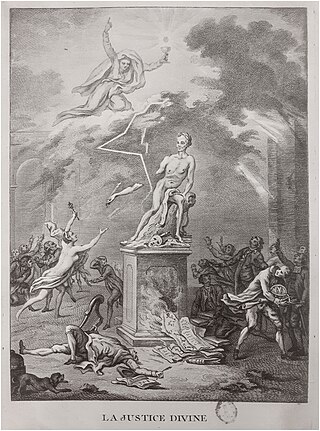
The Counter-Enlightenment refers to a loose collection of intellectual stances that arose during the European Enlightenment in opposition to its mainstream attitudes and ideals. The Counter-Enlightenment is generally seen to have continued from the 18th century into the early 19th century, especially with the rise of Romanticism. Its thinkers did not necessarily agree to a set of counter-doctrines but instead each challenged specific elements of Enlightenment thinking, such as the belief in progress, the rationality of all humans, liberal democracy, and the increasing secularisation of European society.

Discourse on the Origin and Basis of Inequality Among Men, also commonly known as the "Second Discourse", is a 1755 treatise by philosopher Jean-Jacques Rousseau, on the topic of social inequality and its origins. The work was written in 1754 as Rousseau's entry in a competition by the Academy of Dijon, and was published in 1755.

Gabriel Bonnot de Mably, sometimes known as Abbé de Mably, was a French philosopher, historian, and writer, who for a short time served in the diplomatic corps. He was a popular 18th-century writer.

The Social Contract, originally published as On the Social Contract; or, Principles of Political Right, is a 1762 French-language book by the Genevan philosopher Jean-Jacques Rousseau. The book theorizes about how to establish legitimate authority in a political community, that is, one compatible with individual freedom, in the face of the problems of commercial society, which Rousseau had already identified in his Discourse on Inequality (1755).
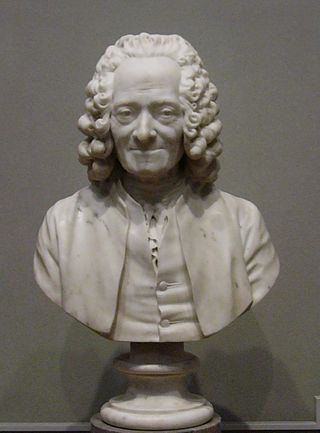
18th-century French literature is French literature written between 1715, the year of the death of King Louis XIV of France, and 1798, the year of the coup d'État of Bonaparte which brought the Consulate to power, concluded the French Revolution, and began the modern era of French history. This century of enormous economic, social, intellectual and political transformation produced two important literary and philosophical movements: during what became known as the Age of Enlightenment, the Philosophes questioned all existing institutions, including the church and state, and applied rationalism and scientific analysis to society; and a very different movement, which emerged in reaction to the first movement; the beginnings of Romanticism, which exalted the role of emotion in art and life.

Montmorency is a commune in the Val-d'Oise department, in the northern suburbs of Paris, France. It is located 15.3 km (9.5 mi) from the center of Paris.

Environmental philosophy is the branch of philosophy that is concerned with the natural environment and humans' place within it. It asks crucial questions about human environmental relations such as "What do we mean when we talk about nature?" "What is the value of the natural, that is non-human environment to us, or in itself?" "How should we respond to environmental challenges such as environmental degradation, pollution and climate change?" "How can we best understand the relationship between the natural world and human technology and development?" and "What is our place in the natural world?" Environmental philosophy includes environmental ethics, environmental aesthetics, ecofeminism, environmental hermeneutics, and environmental theology. Some of the main areas of interest for environmental philosophers are:

A Discourse on the Moral Effects of the Arts and Sciences (1750), also known as Discourse on the Sciences and Arts and commonly referred to as The First Discourse, is an essay by Genevan philosopher Jean-Jacques Rousseau which argued that the arts and sciences corrupt human morality. It was Rousseau's first successfully published philosophical work, and it was the first expression of his influential views about nature vs. society, to which he would dedicate the rest of his intellectual life. This work is considered one of his most important works.
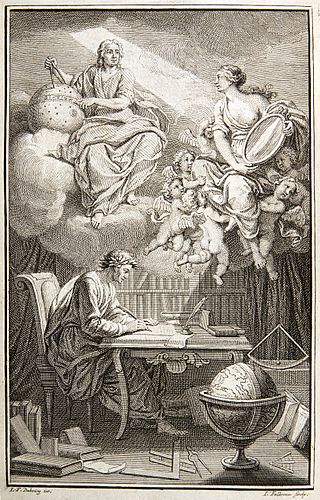
The Lumières was a cultural, philosophical, literary and intellectual movement beginning in the second half of the 17th century, originating in western Europe and spreading throughout the rest of Europe. It included philosophers such as Baruch Spinoza, David Hume, John Locke, Edward Gibbon, Voltaire, Jean-Jacques Rousseau, Denis Diderot, Pierre Bayle and Isaac Newton. This movement is influenced by the scientific revolution in southern Europe arising directly from the Italian Renaissance with people like Galileo Galilei. Over time it came to mean the Siècle des Lumières, in English the Age of Enlightenment.
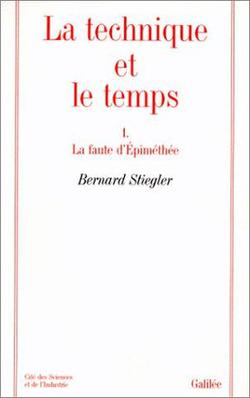
Technics and Time, 1: The Fault of Epimetheus is a book by the French philosopher Bernard Stiegler, first published by Galilée in 1994.
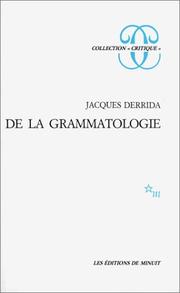
Of Grammatology is a 1967 book by the French philosopher Jacques Derrida. The book, originating the idea of deconstruction, proposes that throughout continental philosophy, especially as philosophers engaged with linguistic and semiotic ideas, writing has been erroneously considered as derivative from speech, making it a "fall" from the real "full presence" of speech and the independent act of writing.
Deep ecology is an environmental philosophy that promotes the inherent worth of all living beings regardless of their instrumental utility to human needs, and argues that modern human societies should be restructured in accordance with such ideas.
Amour de soi is a concept in the philosophy of Jean-Jacques Rousseau that refers to the kind of self-love that humans share with brute animals and predates the appearance of society.

Jacob Vernes was a Genevan theologian and Protestant pastor in Geneva, famous for his correspondence with Voltaire and Rousseau.
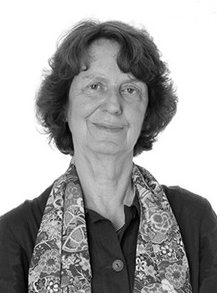
Catherine Larrère is a French philosopher and academic. She is a professor of philosophy emeritus. She is a specialist in Montesquieu's philosophy and an advocate for environmental ethics.
Charles II François Frédéric de Montmorency, was a French aristocrat who held a number of titles, including 8th Duke of Piney-Luxembourg, 2nd Duke of Montmorency, Prince of Aigremont and of Tingry, Count of Bouteville, of Lassé, of Dangu and of Luxe.
















